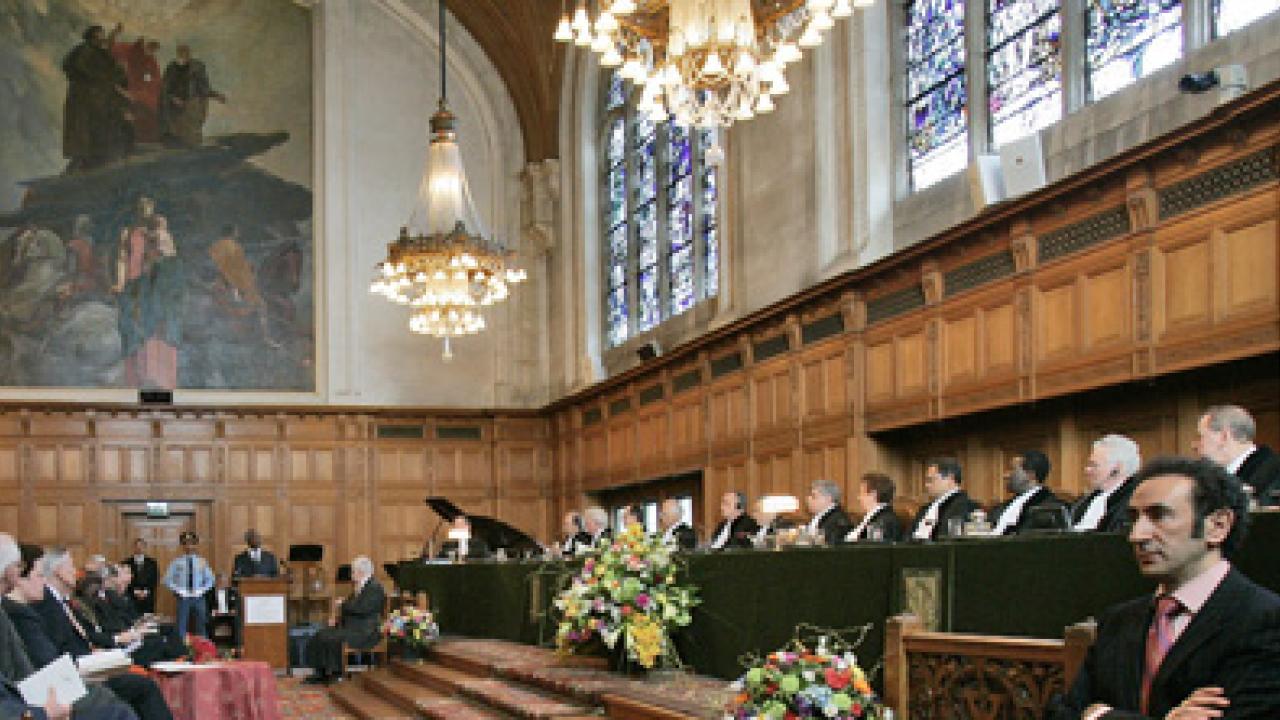
Diplomatic relations deteriorated following the arrest of former Ecuadorian vice president Jorge Glas Espinel at the Mexican embassy in Quito last April.
Diplomatic relations between Mexico and Ecuador deteriorated following the arrest of former Ecuadorian vice president Jorge Glas Espinel at the Mexican embassy in Quito last April. Both countries turned to the International Court of Justice (UN) a few months ago to resolve this dispute.
Glas Espinel received protection at the Mexican embassy on December 17, 2023. On January 5, 2024, a preventive detention order was issued against him, as he was being investigated for an alleged crime of embezzlement of public funds in Ecuador.
Since he was housed in a diplomatic mission, Ecuadorian authorities could not arrest him without Mexico's prior authorization. On February 29, 2024, Ecuador requested that permission. But Mexico did not grant it.
On April 5, 2024, Mexico announced that it was granting political asylum to Glas Espinel. It also announced that it was going to request a safe-conduct pass so that he could leave Ecuador. The Ecuadorian police entered the Mexican embassy that same day to arrest him.
The privileges of embassies
Embassies allow States to carry out their foreign action in other countries. Being located in another (receiving) State, they are granted privileges.
Agents of the receiving State may not enter its premises except with the consent of the head of the mission. Diplomatic agents are inviolable, and the receiving State must take all measures to prevent any aggression against them.
These privileges ensure the full exercise of their functions in the receiving State. They are a manifestation of the principle of State sovereignty.
All these rules were codified in two international treaties: the Vienna Convention on Diplomatic Relations (1961) and the Vienna Convention on Consular Relations (1963). Mexico and Ecuador are parties to both treaties.
Non-compliance with the rules
These rules are the result of a general agreement (consensus) among States; they were created to satisfy their interests. However, in international practice, they have occasionally been breached. It should be stressed that these are exceptional cases.
The most illustrative precedent is the occupation of the US embassy in Tehran, Iran, by a group of revolutionary students who held US diplomatic and consular staff hostage in 1979. The International Court of Justice declared Iran in breach of these rules in 1980.
The controversy between the two Latin American countries
On April 11, 2024, Mexico filed a lawsuit against Ecuador before the Court. Mexico alleges the violation of several international norms on embassy privileges. In this regard, it is worth making two reflections:
First, Mexico requested that the Court issue precautionary measures while the dispute is being resolved. According to the Mexican request, Ecuador must avoid further conduct that would be detrimental to its interests.
The Court concluded that it was not necessary to adopt these measures because between April 9 and May 1, 2024, Ecuador had given guarantees – on up to three separate occasions – that it would respect international law.
When a State – Ecuador, in this case – publicly assumes a commitment towards another, this unilateral act is considered to create international obligations for that State. This is based on the principle of good faith.
Second, on April 29, 2024, Ecuador filed another lawsuit against Mexico. Ecuador alleges that, between December 17, 2023, and April 5, 2024, Mexico interfered in pending legal proceedings in Ecuador against Jorge Glas Espinel.
The International Court of Justice has already set dates for Mexico (April 22, 2025) and Ecuador (January 22, 2026) to present their complaint and response to the complaint, respectively. The Court will then decide whether there will be a second round of written submissions or whether to open the oral phase of the case. In the latter case, it will summon both parties to its headquarters in The Hague and there will not be a solution until at least 2027.
Mexico and Ecuador, in any case, can negotiate in the coming months and reach an out-of-court settlement, which would mean the end of the litigation before the Court. There is a relevant precedent: Ecuador's lawsuit against Colombia in 2008 regarding aerial spraying of herbicides. This litigation ended with an agreement in 2013.
In conclusion, the Court offers both States an option to restore their diplomatic relations. Its intervention also represents evidence of the trust that Latin American States place in this institution to resolve their disputes peacefully.









